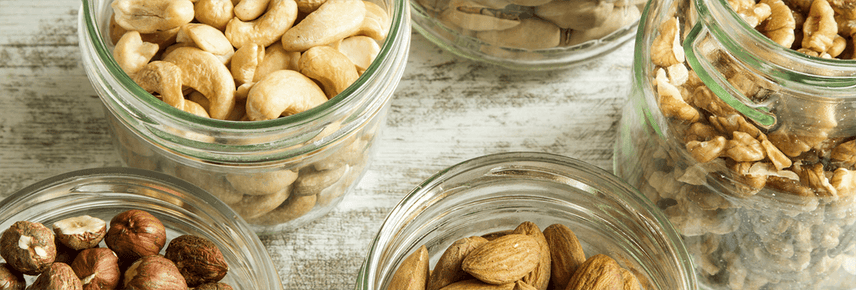Heart disease (including heart attack and stroke) is Australia’s biggest killer, causing 45,392 deaths in 2015 alone. That’s one Australian death every 12 minutes.
However, more research is showing that a daily handful of nuts can keep your heart happy and ticking for longer.
In fact, a recent review showed that if you eat ¼ cup (about 30 g) of unsalted nuts each day, you can reduce your risk of heart disease by up to 27%! Or by 31% if peanuts are consumed.
Another reputable study showed that it’s possible to reduce your risk of death from chronic diseases like heart disease by up to 20% if nuts are eaten 7 or more times each week.
When it comes to your waistline, studies show that a regular intake of nuts does not change your weight. In fact, those who consume nuts daily have a slimmer waistline, experience less weight gain, and have a lower risk of being overweight or obese.
Unfortunately, Australians aren’t eating enough nuts. Data from the latest Australian Health Survey, summarised by Nuts for Life, shows that Australians consume just 6g of nuts per day! This is far short of the 30g recommended serve in the Australian Dietary Guidelines.
Download our free nutrition fact sheet for expert dietitian advice on heart health.
Why are nuts so good?
Nuts are good at protecting you and your heart because they contain good sources of fibre, polyunsaturated fats, magnesium, vitamin E and antioxidants.
Fibre: can reduce your blood cholesterol levels by catching cholesterol in your gut and stopping it from being absorbed into your blood stream.
Polyunsaturated fats: help keep your LDL (bad) cholesterol low.
Magnesium: helps keep your heart muscle healthy, improves stress control, and can reduce sudden cardiac death.
Vitamin E: is a powerful antioxidant that can help capture lone molecules or ‘free radicals’ that can cause damage and inflammation in your heart and blood vessels.
Have nuts, peanuts, and other plant foods too
When choosing nuts, make sure they’re fresh and unsalted. Also aim for a variety, including almonds, walnuts, brazil nuts, hazelnuts, cashews, pistachios, pecans and macadamias. And don’t forget to eat some peanuts too (sometimes classified as a nut but they're actually a legume). And try these ideas in our Nuts and nutrition article for easy ways to include more nuts into your diet.
If you include a variety of wholegrains, vegetables, legumes, and fruits in your diet too, your risk of heart disease can be reduced even further. Adding regular exercise and movement to your day will also keep your heart strong, and support good blood flow.
How do I know if my heart is at risk?
Heart disease is a serious health concern and can kill without notice. So watch your heart by getting regular weight, blood pressure, and cholesterol checks with your doctor. If you’ve got high cholesterol, high blood pressure, if you’re overweight or obese, a smoker, or have an inactive lifestyle, then it’s likely that your heart may be in need of some urgent care. There's more info on heart health, in our Heart healthy living article.
Want more information?
Our nutrition fact sheets, created by accredited dietitians, provide the latest nutrition and lifestyle information to help you understand which foods are the best to eat. Click here to see the heart health nutrition fact sheets.




